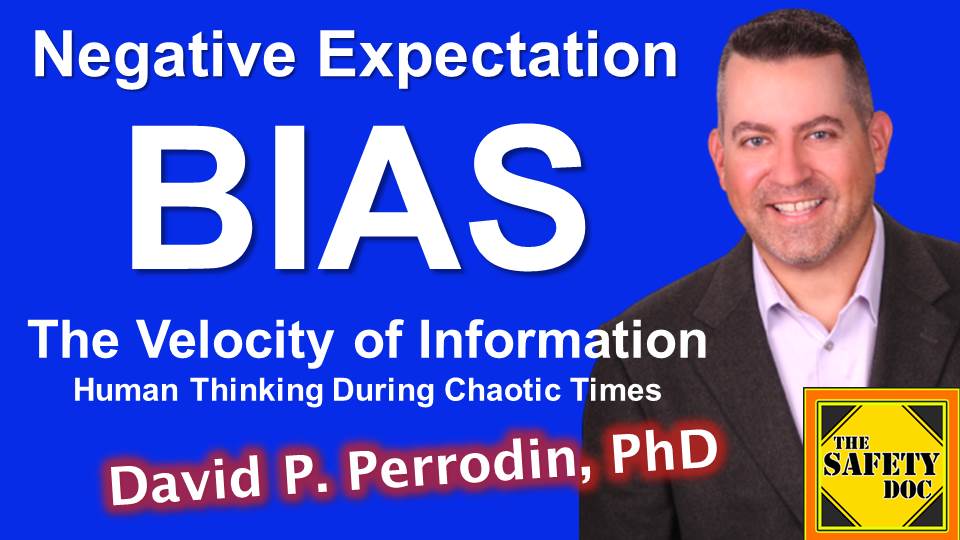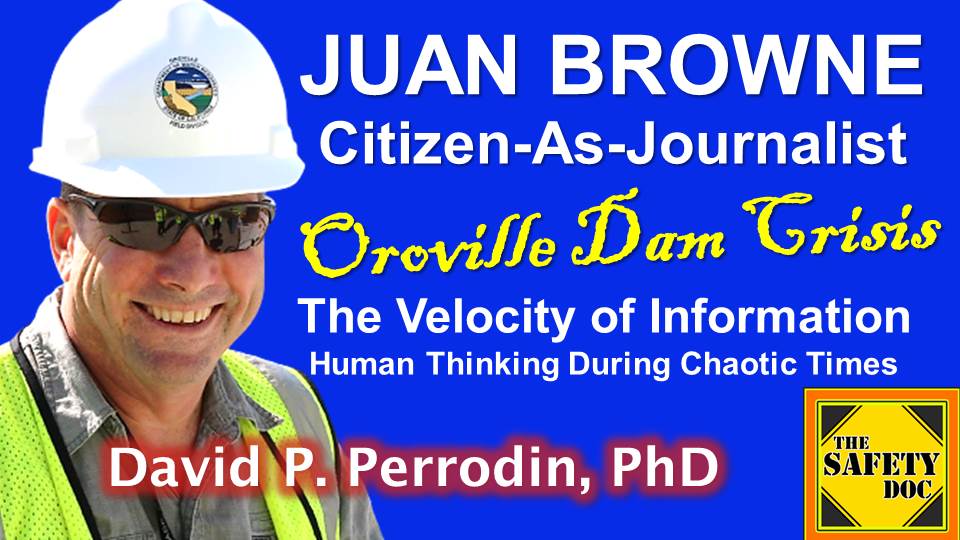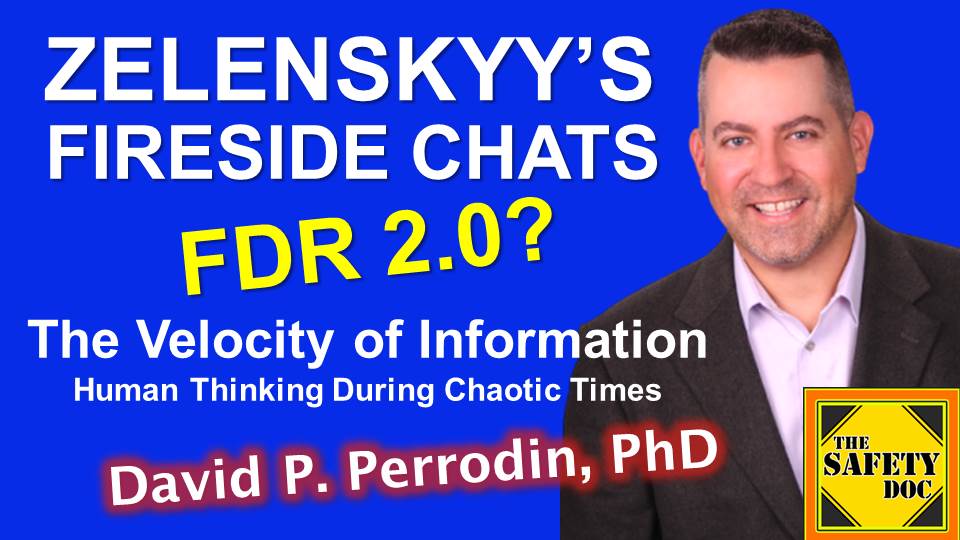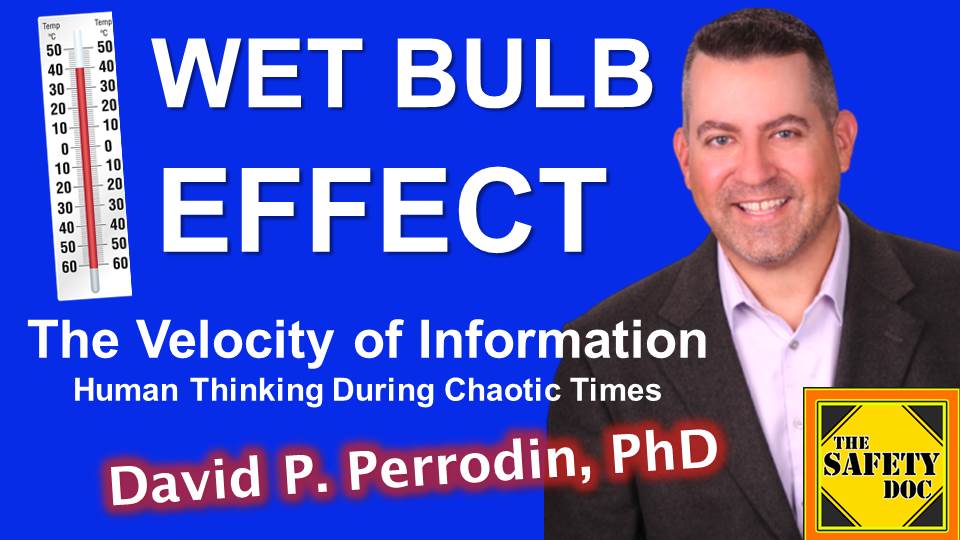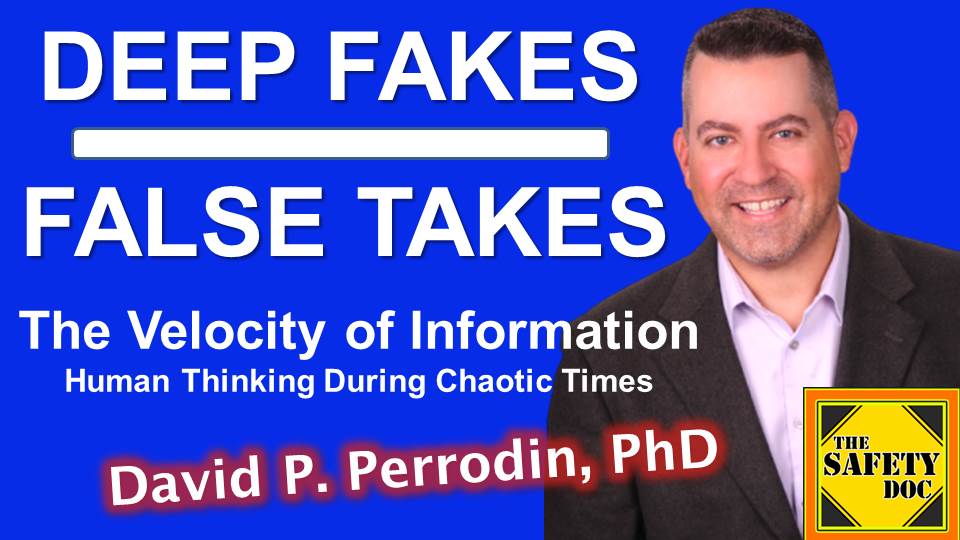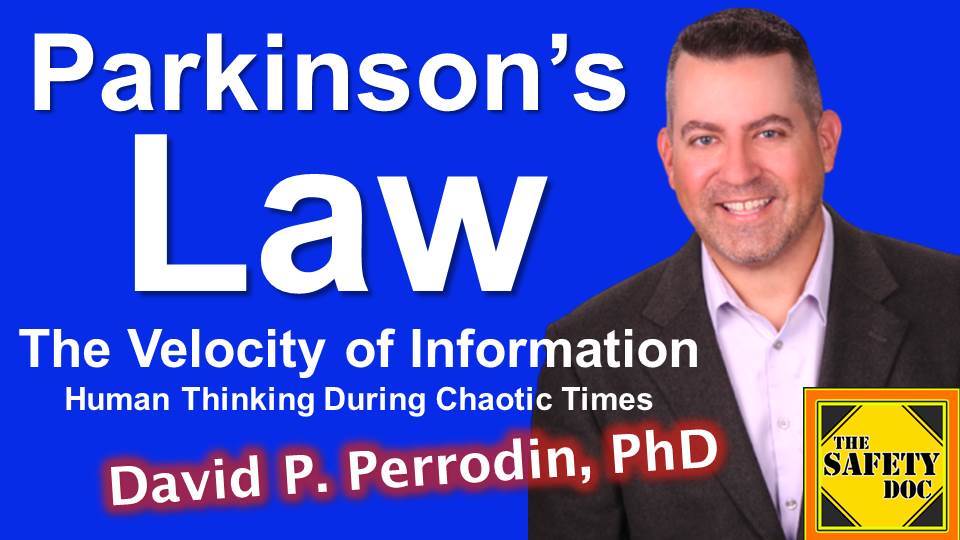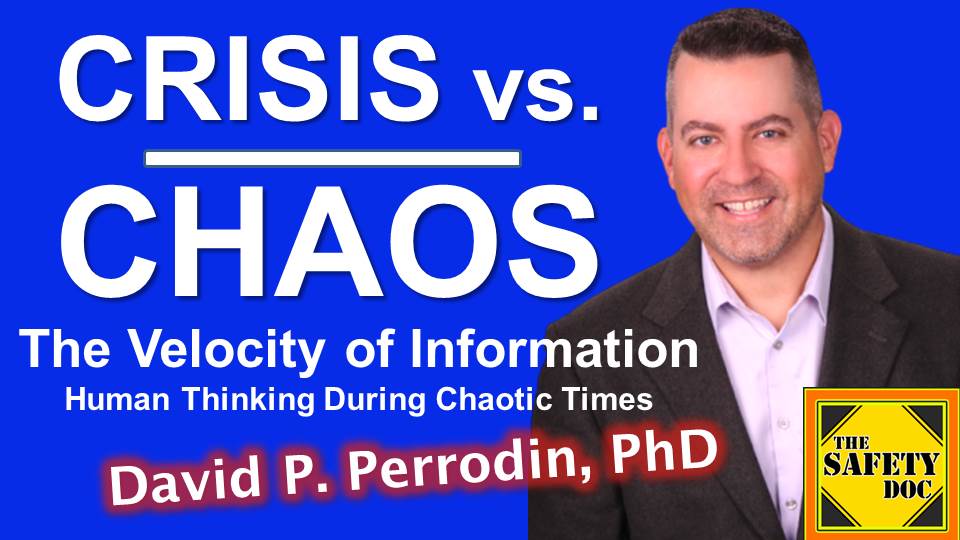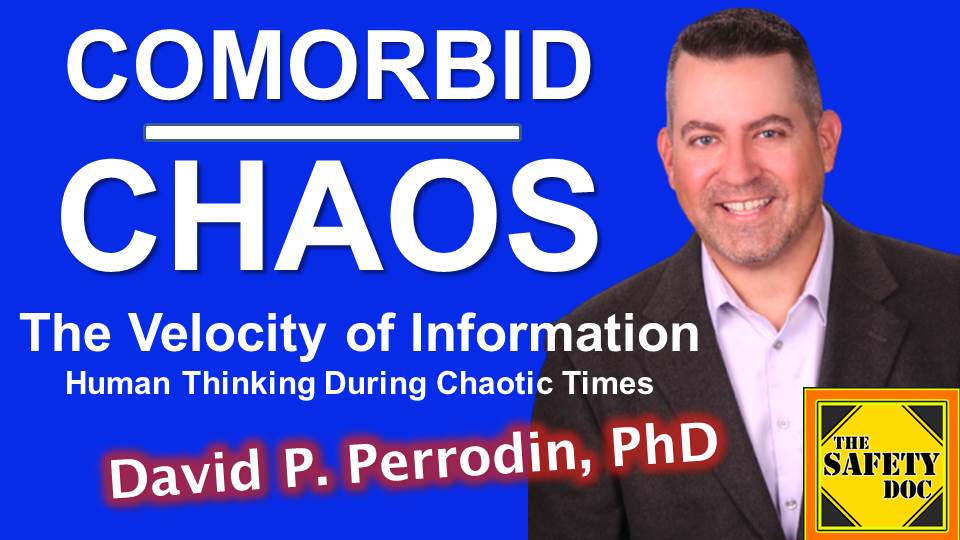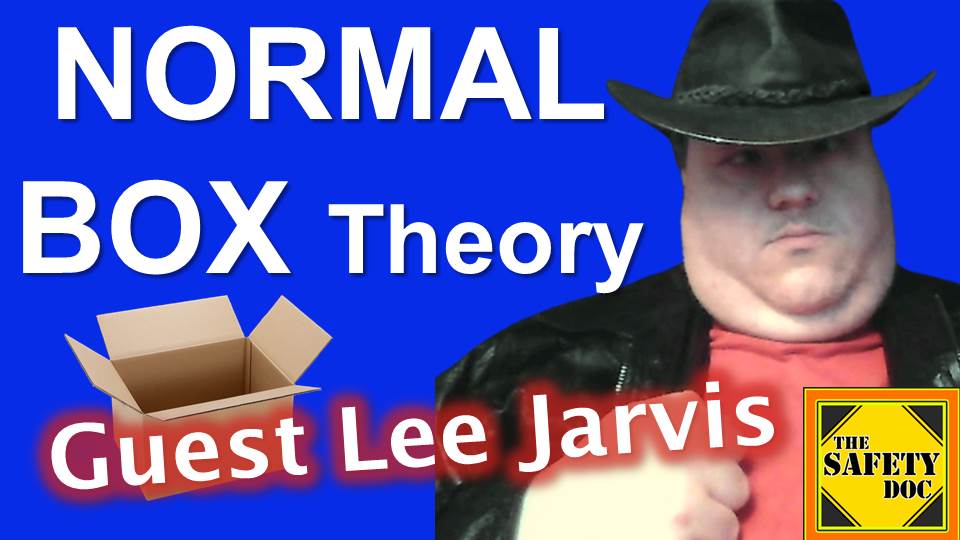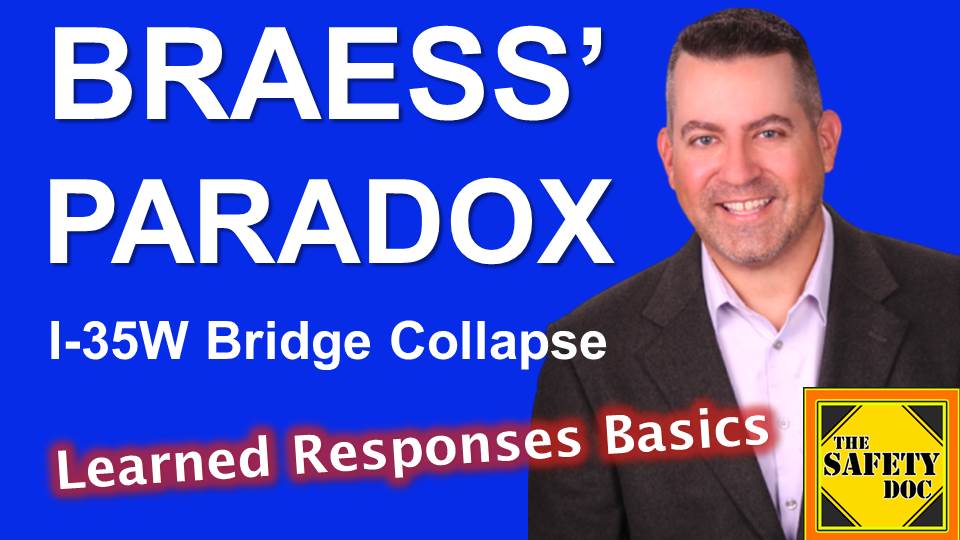Posts Tagged ‘chaos’
Negative Expectation Bias | When All News is Bad News | The Velocity of Information | SDP181
[Podcast] A popular Reddit thread is titled, “What’s a ‘Today is going to suck’ red flag. A top up-voted response was, “Waking up with a huge headache,” and another was “When you get all the red lights on your commute.” Each of us could add a comment to that thread, right? Per the National Institute…
Read MoreJuan Browne | Oroville Dam and Citizen-As-Journalist | The Velocity of Information | SDP179
[Podcast] In 2017, America’s tallest dam complex had partially, but catastrophically, failed. The Oroville Dam, located in northern California, left operators scrambling to figure out how to manage a main spillway failure, eroding secondary spillway, and a rising water level in the reservoir. Remember those tense days when America was riveted to the nightly news…
Read MorePropaganda Clone | How Zelenskyy Modernized FDR’s Fireside Chat | Velocity of Information | SDP178
[Podcast] Between 1933 and 1944, President Franklin Delano Roosevelt delivered 31 evening radio addresses to ameliorate the fears and concerns of the American people as well as to inform them of the positions and actions taken by the U.S. Government. The addresses were both novel and sticking. Ranging from 11 to 44 minutes, these informal…
Read MoreMeasuring the Wet Bulb Effect on Attention and Information | The Velocity of Information | SDP177
[Podcast] Stagnant, sweltering summer days cocoon us with unshakable pulsing heat and sticky humidity in what is known as a wet bulb effect. It’s downright uncomfortable. Our attention deviates from things at hand and centers on making an escape to our air-conditioned cars and dwellings, but the reprieve is temporary – and some of us…
Read MoreDeep Fakes and False Takes | The Velocity of Information | David P. Perrodin | SDP176
[Podcast] In June, 2019, U.S. lawmakers held their first hearing devoted primarily to the threat of artificially generated imagery. Then in October, 2019, California banned political deep fakes during election season. But, such actions have raised questions. What might be consequences looming at the intersection of deep fakes and public policy? DIRECT LINK to MP3…
Read MoreBreaking Parkinson’s Law in Chicago | The Velocity of Information | David P. Perrodin | SDP175
[Podcast] Remember fiddling around until the final hour to hunker down and complete an assignment for school or a project for work – even though you knew of the deadline for weeks? There you were, confident you could serviceably complete the task and submit it in a nick of time. Welcome to Parkinson’s Law! DIRECT…
Read MoreCrisis vs. Chaos | Bifurcation and Strange Attractors | The Velocity of Information | SDP174
[Podcast] What are the differences between crisis and chaos? Is a sudden bifurcation better than a gradual bifurcation? How might a “strange attractor” contribute to the sometimes long duration, and difficult-to-recognize, patterns in chaos? Doc will discuss these questions and read an excerpt pertaining to them from his book ‘The Velocity of Information: Human Thinking…
Read MoreComorbid Chaos | 90 Days of Uncertain Times | Velocity of Information | David P. Perrodin | SDP173
[Podcast] What is comorbid chaos, how is it different from other types of chaos, and what are its consequences for societies and individuals? Doc explains the markers of uncertain times and reads an excerpt from his book, The Velocity of Information: Human Thinking During Chaotic Times. DIRECT LINK to MP3 of this Episode: https://tinyurl.com/SDP173-AUDIO COMORBID CHAOS.…
Read MoreUnpacking Normal Box Theory | Perception of Normality is Everything | Guest Lee Jarvis | SDP171
[Podcast] Guest William Wesley Lee Jarvis returns to the show to discuss “Normal Box Theory”in society and how it applies to how people, and cultures in identifying the illusion of priorities. What is “thinking in averages?” Why is perception of normality everything? What are counter-processes and fixes? How do we analyze processes of culture relative…
Read MoreThe Braess Paradox | Psychological Impact of I35W Bridge Collapse on Driving Behavior | SDP169
[Podcast] WHAT IS THE BRAESS PARADOX? Braess’ Paradox states that, counterintuitively, adding a road to a road network can slow down overall traffic through it. The paradox was discovered in 1968 by German mathematician Dietrich Braess as he examined humans driving behavior. At the root of this paradox is that every driver thinks for themselves…
Read More
